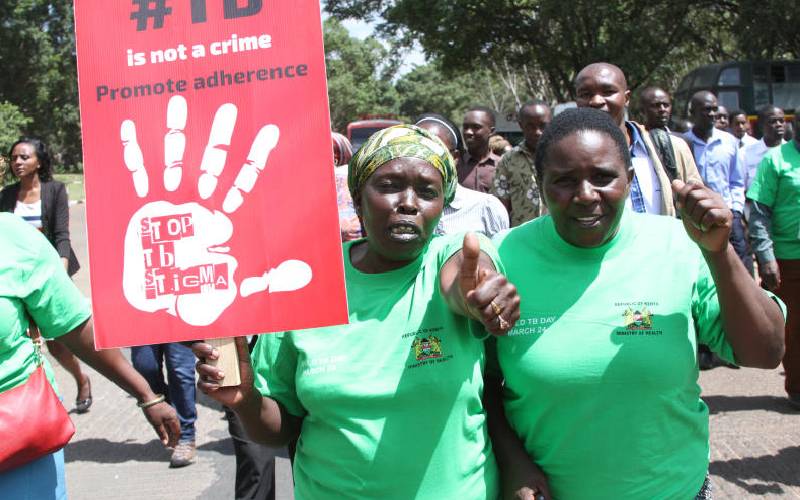×
The Standard e-Paper
Stay Informed, Even Offline

Stakeholders in a procession along Uhuru highway during the launch of 'Mulika TB-Maliza TB' awareness campaign during the commemoration of World TB Day at Uhuru Park on March 24, 2016. [File, Standard]
The Covid-19 pandemic has negated what Kenya had attained in the fight against Tuberculosis (TB).